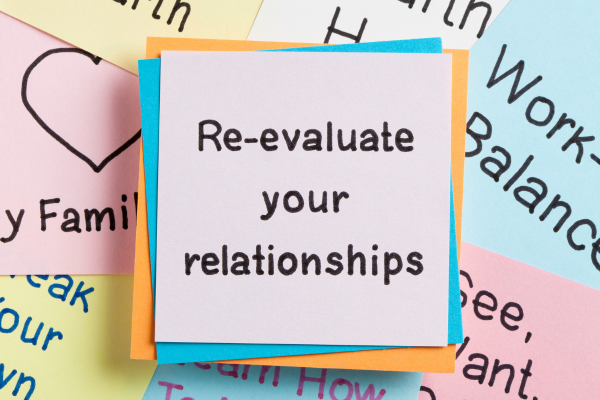
Respect: The Cornerstone of a Successful Family
Respect contributes to a successful family life. Today, let’s delve deep into the virtue of respect and its pivotal role in bringing out the best in ourselves and each other within the family unit.
In family life, respect is the cornerstone that upholds the entire structure. It is the one virtue every parent thinks about and discusses: the desire for themselves and their family. Parents want their children to grow up and respect themselves and others. The adhesive binds family members together; the compass guides us through the maze of challenges, and the mirror reflects our deepest values.

Respect is the Golden Thread
Imagine your family as a beautifully woven tapestry where love, trust, and unity are intertwined by the golden thread of respect. This respect strengthens the fabric, creating bonds that are not easily broken.
Respect Begins at Home: The family is the first school of respect. It’s where we learn the importance of treating one another with kindness, understanding, and consideration. Children, especially, absorb these lessons like sponges, and the respect they witness at home becomes the foundation for their interactions with the world beyond.
Respect Nurtures Harmony: In a respectful family, harmony is not just an ideal; it’s a lived reality. Respect enables family members to appreciate each other’s differences and work together towards common goals. It’s a harmonious blend of individuality and unity.
Respect as a Mirror of Values: Respect is not a standalone virtue; it reflects and magnifies our values. Cultivating respect within our family nurtures a fertile ground for other virtues to flourish. Let’s explore some virtues that beautifully complement and balance out respect:
-
- Empathy: Empathy is the ability to understand and share the feelings of another. We naturally become more attuned to their emotions and perspectives when we respect someone. Empathy fosters deep connections within the family, allowing us to comfort, support, and uplift one another during challenging times.
- Patience: Respect often requires patience, especially when dealing with differing opinions or generations. Patience allows us to listen attentively, acknowledge differences, and find common ground, leading to more peaceful and productive interactions.
- Gratitude: Respect and gratitude are closely intertwined. When we respect the efforts and contributions of family members, we naturally become more appreciative of what they bring to the family. Expressing gratitude fosters positivity and reinforces the bonds of respect.
- Communication: Effective communication is crucial in any relationship, and it thrives in an atmosphere of respect. When family members respect each other’s opinions and viewpoints, they are more open to constructive dialogue. This, in turn, enhances understanding and helps resolve conflicts amicably.
Respect in Parenting: A Vital Lesson
For parents, teaching respect is one of the most valuable lessons they can impart to their children. It goes beyond mere words; it is an action-based virtue. Here’s how respect plays a vital role in parenting:
Acknowledging Respect: When parents know that their children have all the virtues, including respect, in their full potential. A parent’s responsibility is not so much to teach but rather to draw out of their child the virtue of respect in a balanced way. This sets the tone for the parent/child relationship.
Modeling Respect: Children learn by example. When parents model respect in their interactions with each other, their children, and others in their lives, they set a powerful precedent. Children absorb these behaviors and carry them into their relationships.
Creating Trust: Respect is the foundation of trust. When children feel respected by their parents, they develop a sense of security and confidence in the parent-child relationship. This trust allows them to express themselves openly and seek guidance when needed.
Teaching Boundaries: Effective discipline, delivered with respect, helps children understand boundaries. It teaches them that rules and consequences exist not to control but to guide and protect. Respectful discipline fosters understanding and cooperation.
Fostering Independence: Respect allows parents to acknowledge their children’s growing independence and decision-making abilities. It empowers children to make choices, learn from their experiences, and develop a sense of responsibility.
Respect at Every Life Stage
Respect is not static; it evolves and adapts at each stage of family life:
Respect for Children: Respecting children means acknowledging their feelings, thoughts, and aspirations. It involves listening to them, valuing their input, and providing a safe space for them to grow and learn. Respectful parenting encourages self-confidence and independence.
Respect for Parents: Respect for parents by children is equally important. It acknowledges the wisdom and guidance parents provide. This respect can evolve into deep friendship and mutual support as children grow into adults.
Respect for Elders: In multigenerational families, respect for elders is a time-honored tradition. It involves appreciating their life experiences, seeking advice, and providing care and companionship as they age.
Balancing Respect with Other Virtues
While respect is fundamental, it is most effective when balanced with other virtues.
-
-
- Firmness with Kindness: Balancing respect with firmness allows parents to set boundaries and expectations while maintaining a nurturing and understanding environment.
- Assertiveness with Tact: Assertiveness ensures that your voice is heard, but it should be expressed with tact and consideration for others’ feelings.
- Honesty with Sensitivity: Honesty is vital, but it should be coupled with sensitivity to avoid unnecessary hurt or conflict.
- Independence with Support: Fostering independence in children is crucial, but it should always be accompanied by unwavering parental support and guidance.
-
Respect is not just a virtue; it’s a way of life within a family. The compass guides us through the intricate dynamics of family relationships, leading us to a place of understanding, unity, and unconditional love. As we reflect on the significance of respect, may we strive to cultivate it within our families, nurturing a strong, loving, and harmonious home where every member can be their best selves.
I invite you to sign up for our newsletter. It is a great way to get the Virtue of the Month and tips on relationships, parenting, and self-care. In addition, you’ll be the first to know about upcoming classes for successful families.
To sign up, visit the “Newsletter” section here on the website. Enter your email address, and you’ll receive our newsletter in your inbox on Wednesdays. I appreciate your interest in bringing out the best in your children and yourself. We look forward to keeping you informed through our newsletter!














